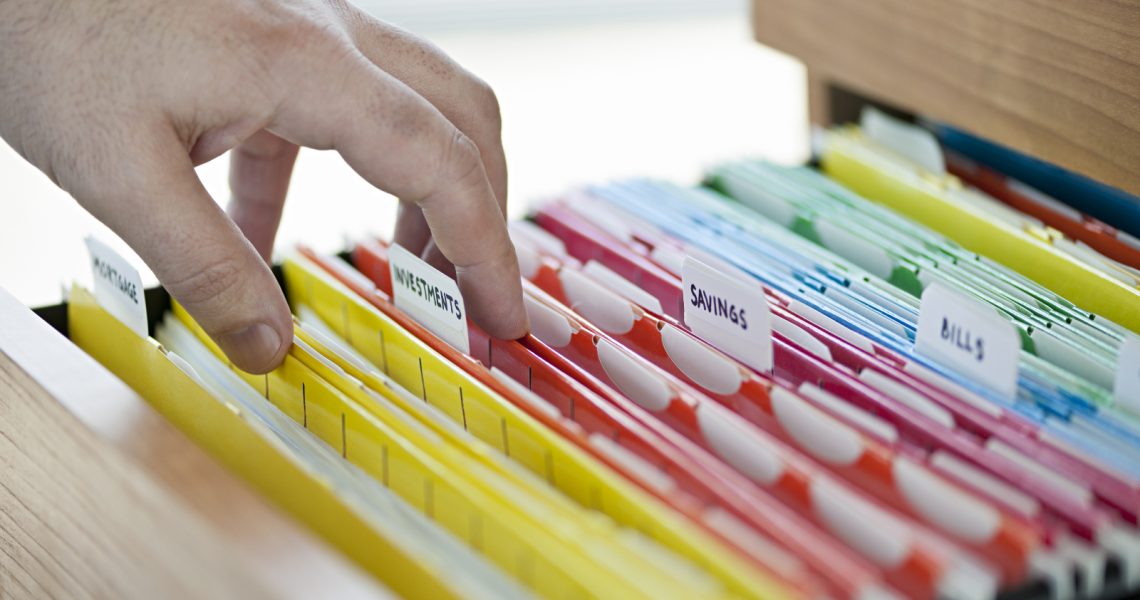It’s common for people to run into document retention and archiving problems, which becomes apparent, especially during tax season. Receipt ink fades over time; when photocopies are pulled apart, they become unreadable because they have become stuck together, and file boxes in the attic have been decimated by mold and mice.
Suddenly, you might find you need some of those old documents and now do not have reliable access to them. We’ve all experienced these kinds of disappointments. So what should the savvy person do to preserve financial history and documentation without having paper overrun the basement? The following tips might be helpful:
What do you need to keep?
Bills and Receipts
The general wisdom is to retain these documents for at least five years or so, sorted into individual folders. This can include receipts of important or large purchases or any receipts of items purchased for a home or side business. Home improvement records should be retained, along with medical bills, utility bills, and paycheck stubs.
Financial Records
Records such as these should be kept for around seven years and will include credit card and bank statements, investment and real estate records, tax returns, and any records of loans that have been paid off. Any active financial contracts, especially long ones, should be retained, along with insurance and property records. Also, any stock or bonds should be documented as well.
Personal Documents
Anyone who has ever had to replace a birth certificate, death certificate, driver’s license, or social security card knows how difficult these can be if at least some of these other documents are not available. One should keep copies of these documents, along with marriage licenses, wills, adoption papers, or any records of mortgages that have been paid off.
Ideally, one should store these particular documents in a waterproof, fireproof container that is easily carried and easily grabbed in the event that one must evacuate their home for any reason. People who live in areas prone to natural disasters know all too well how essential these documents are and how hard they are to replace if damaged or lost.
Storage Options
Now that we have established how important these documents are, now let us discuss storing them. These documents should be stored all in the same place, in an area of the building that is climate controlled and not prone to extreme temperatures or moisture, and should be easily accessible if needed at a moment’s notice.
Physical Storage
As suggested above, storing any essential documents in a protective container that can be easily grabbed and carried out is a good idea. One can obtain a durable portable safe or locking briefcase that fills this option. Some durable storage bins meant for outdoor holiday decorations are often durable and weatherproof enough to act as document storage.
Digital Options
Important documents scanned and stored on a large capacity thumb drive can be safely stored in a fireproof safe or a safe deposit box that is cost-effective, albeit inconvenient and time-consuming. One should ensure multiple backups are made in case the drive is lost or damaged.
A cloud-based data storage option is also available. Plenty of reliable cloud-based providers offer this option. Cloud storage also provides immediate access anywhere there is an internet connection, which is fast and reliable. One can also back up files to an external hard drive and store it in a safe deposit box.
Whatever method you choose, make sure it is reliable, durable, and easy for you to access. This will give you the peace of mind you need knowing your financial records are safe for years to come.


